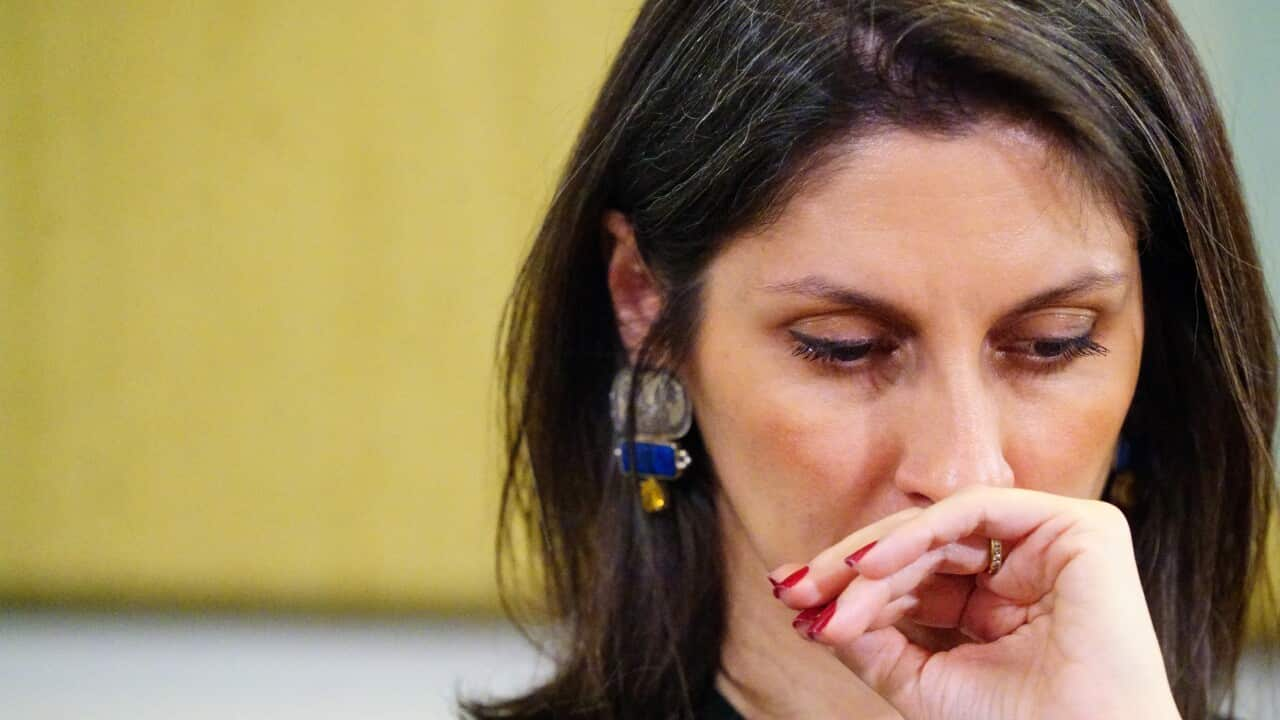The release of British-Iranian charity-worker Nazanin Zaghari-Ratcliffe has renewed international attention on Iran’s use of “hostage diplomacy” and the conditions faced by those detained in its prisons.
It comes amid news of the death of an 83-year-old Australian-Iranian grandfather in a Tehran prison last week.
Dr Alam Saleh, a lecturer in Iranian studies at the Australian National University, said the Iranian regime has a history of unjustly detaining foreign and dual nationals to use as political “bargaining chips”.
Ms Zaghari-Ratcliffe was detained in Tehran in 2016, accused of spying and plotting to overthrow the Iran government.
Her case echoes that of Australian-British academic Kylie Moore-Gilbert who was imprisoned for two years in Iran on spying charges before her release in a ‘prisoner swap’ in November 2020.
Both cases are an example of the “so-called hostage diplomacy” used by the Iranian regime to “put pressure” on foreign governments, Dr Saleh said.
"Whenever they see themselves under pressure or need something they will target certain individuals from countries they need to put pressure on. They can do it to anyone,” Dr Saleh said.
Dr Rodger Shanahan, a nonresident fellow at the Lowy Institute, said Iran has “a track record of detaining Western nationals, often but not exclusively dual citizens”.
"Often-times they're detained on claims of espionage but utilised in a broader way to get foreign policy outcomes favourable to [Iran],” he said.
Ms Zaghari-Ratcliffe was released following the United Kingdom government’s payment of a historic $716 million debt to Iran.
"I think it was week two or week three that I was arrested, like six years ago, that they (Iran officials) told me, 'We want something off the Brits. We will not let you go until such time that we get it'," she told a news conference on Monday.
"And they did keep their promise."
While her release is “great news” and "she should never have been detained in the first place", Dr Saleh warned that Iran may be encouraged to continue its practice of hostage taking.
“Iran doesn't have much bargaining power because of sanctions, so there was no chance of getting this [historic debt] paid back, unless they used this kind of hostage-taking process,” he said.
Whether Iran continues to practice hostage diplomacy will likely depend upon negotiations over the Joint Comprehensive Plan of Action (JCPOA) - a deal under which Iran agreed to limit its nuclear development before withdrawing from in December 2020 - and the lifting of sanctions imposed by the United States in 2018, Dr Shanahan said.
“If there's no resolution to sanctions there will be certain actors within the Iranian system who think [hostage taking] is a way to obtain outcomes and it's probably more likely to continue,” he said.
“If there are some successful resolutions in the negotiations and Iran feels like it's back in the international community there will be pressure within the [Iranian] system to discontinue this approach as it's not what responsible players do and there are other ways to achieve outcomes ... the JCPOA is probably the first marker we'll see as to what the likelihood of this tactic continuing is.”
Australian-Iranian grandfather’s ‘cruel, heartbreaking’ death in Tehran prison
Ms Zaghari-Ratcliffe’s return to the UK follows the death of 83-year-old Australian-Iranian grandfather Shokrollah Jebeli in Tehran’s Evin prison last week.
Mr Jebeli’s family in Australia had been campaigning for his release for more than two years, after he was jailed over financial disputes.
Amnesty International raised “grave concerns” over Mr Jebeli’s health and conditions in the prison in January.
“In Iran and around the world, Evin prison is symbolic of Iran’s rampant political repression. It has held hundreds of peaceful activists, journalists, intellectuals and human rights lawyers throughout its history,” Amnesty International Australia campaigner Nikita White said.
Ms White said research by Amnesty International “points to inhumane and unsanitary conditions at Evin Prison. Chronic overcrowding, severely limited hot water, poor ventilation, and infestations of cockroaches and mice, particularly near kitchen areas, are among the most common complaints”.
“Areas of the prison are controlled by the Ministry of Intelligence and Revolutionary Guards, where detainees are routinely subjected to torture and other ill-treatment,” she said.
Dr Moore-Gilbert, who also spent time detained in Evin prison, described Mr Jebeli’s death as a “cruel, heartbreaking and entirely preventable tragedy.”
As Iran does not recognise dual citizenship, Mr Jebeli was not allowed to access Australian consular assistance.
The Department of Foreign Affairs and Trade told SBS News it was providing consular assistance to Mr Jebeli’s family.
“Throughout the process of Mr Jebeli’s legal case, conviction and imprisonment, Iran refused to accept Mr Jebeli’s Australian citizenship, and refused to accept Australia’s right to consular access to Mr Jebeli,” a DFAT spokesperson said.
“The Australian Government consistently advocated for Mr Jebeli’s interests and repeatedly sought his release on compassionate and humanitarian grounds given his age, underlying infirmities and his illness.”
Share



